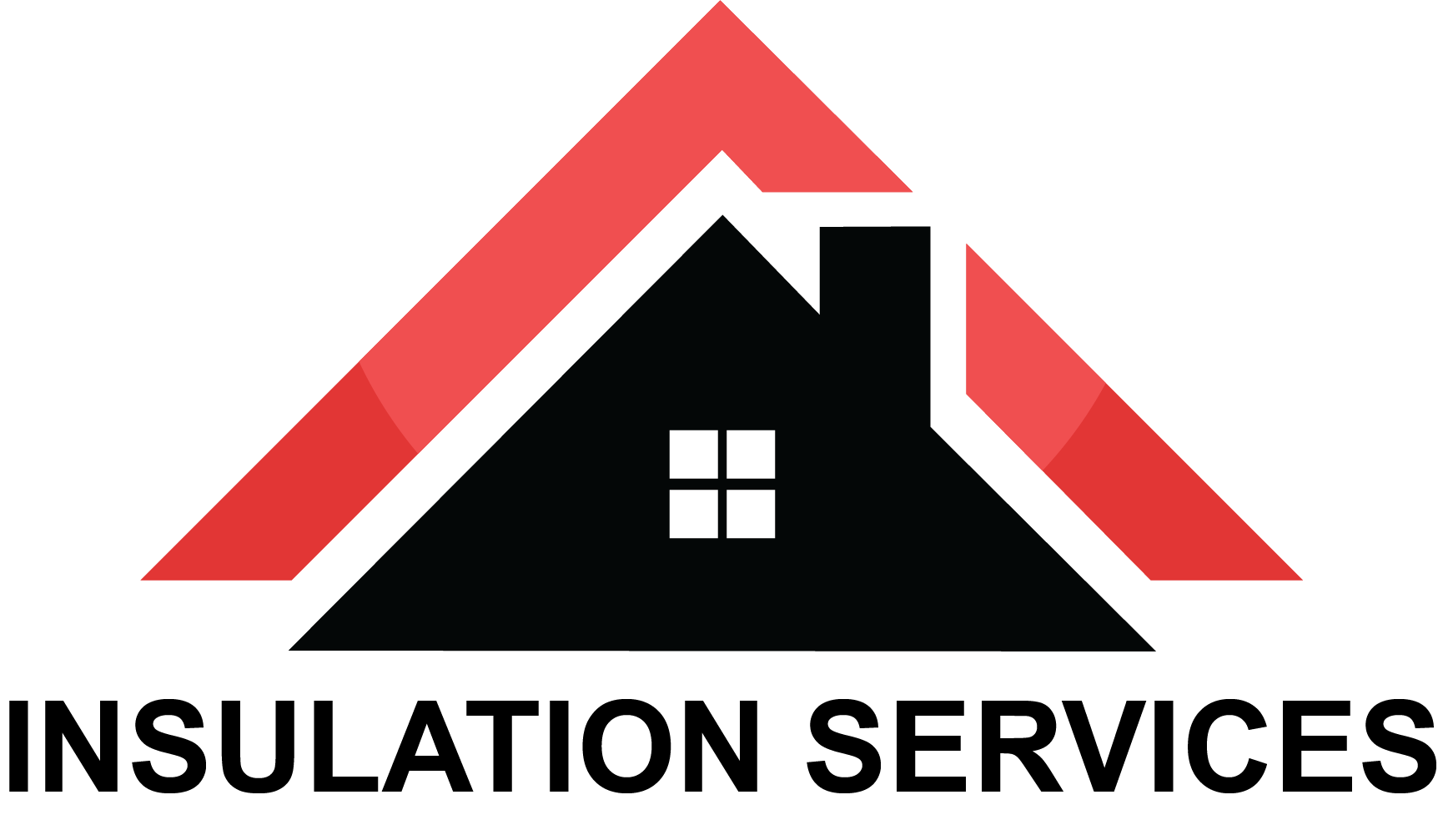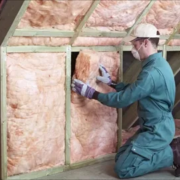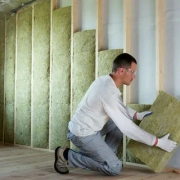Protect Your Home with Professional Insulation Services
Your home is one of your most significant investments, and maintaining its comfort, energy efficiency, and structural integrity is essential for long-term value. One of the most effective ways to ensure your home stays comfortable throughout the year while reducing energy costs is by installing professional insulation. Whether you’re building a new home, renovating an existing one, or just looking to upgrade your current insulation, professional insulation services can provide the protection your home needs against the elements.
In this guide, we’ll explore why proper insulation is so important, the benefits of professional installation, and how to choose the best insulation services for your home.
Why Insulation Is Essential for Your Home
Insulation plays a critical role in the overall performance of your home. Its primary function is to reduce heat transfer, keeping your home warmer in winter and cooler in summer. Without adequate insulation, your home will likely suffer from temperature fluctuations, high energy bills, and an uncomfortable living environment.
Here are some of the key benefits of having quality insulation installed:
1. Energy Efficiency
One of the most significant benefits of home insulation is the reduction of energy consumption. Proper insulation helps prevent the loss of heat during the winter and keeps the cool air inside during the summer. By reducing the need for your heating and cooling systems to work harder, insulation significantly lowers your utility bills. Homeowners who upgrade their insulation can expect to save up to 20% or more on their heating and cooling costs.
2. Improved Comfort
Insulation ensures that your home maintains a consistent temperature throughout the year. Whether it’s the cold winter months or the sweltering summer heat, insulation regulates indoor temperatures by preventing drafts and heat loss. Proper insulation helps keep rooms more comfortable, reducing the strain on your HVAC system and improving indoor air quality.
3. Noise Reduction
Insulation also provides soundproofing benefits by absorbing sound waves. It helps reduce the amount of external noise entering your home and minimizes sound transmission between rooms. This is especially beneficial if you live in a busy neighborhood, near a busy street, or in a multi-family dwelling. By installing high-quality insulation, you can enjoy a quieter, more peaceful living environment.
4. Protection from Moisture
Certain types of insulation, such as spray foam, can act as a moisture barrier, preventing condensation and mold growth. In areas like basements, crawl spaces, and attics, where moisture problems are common, professional insulation can protect your home from water damage and the development of harmful mold and mildew.
5. Enhanced Home Value
Homes with good insulation are generally more attractive to potential buyers, as they are energy-efficient, cost-effective, and comfortable. By investing in professional insulation services, you can increase the value of your home and make it more appealing to prospective buyers.
Types of Insulation for Your Home
There are several types of insulation materials, and each has its unique benefits and applications. The choice of insulation depends on factors like your home’s climate, energy efficiency goals, and budget. Here are some of the most common types of insulation used in residential homes:
1. Fiberglass Insulation
Fiberglass insulation is one of the most commonly used materials for homes. It comes in batts or rolls and is ideal for spaces like attics, walls, and floors. Fiberglass is relatively inexpensive, non-combustible, and offers a high R-value per inch of thickness, making it an effective option for energy efficiency. However, it can be irritating to the skin, so it’s important to handle it with care.
2. Spray Foam Insulation
Spray foam insulation is applied using specialized equipment, and it expands to fill gaps and crevices. This makes it ideal for hard-to-reach areas like crawl spaces, attics, and walls with irregular shapes. Spray foam insulation provides an airtight seal and is highly effective at preventing air leaks, moisture, and mold growth. It is also known for its superior R-value, offering long-term energy savings and durability.
3. Blown-in Insulation
Blown-in insulation is typically made from fiberglass or cellulose and is blown into cavities, attics, or wall spaces using a machine. It’s ideal for retrofitting homes with existing insulation, as it can fill voids and spaces more effectively than batts or rolls. Blown-in insulation is a cost-effective solution for improving home insulation and increasing energy efficiency.
4. Rigid Foam Insulation
Rigid foam insulation is used in areas that require a higher R-value per inch, such as foundation walls or areas subject to moisture. It’s dense, durable, and provides excellent thermal resistance. Rigid foam boards come in a variety of thicknesses and are typically installed in basements, crawl spaces, and other areas where extra insulation is needed.
5. Reflective or Radiant Barrier Insulation
Reflective insulation is designed to reduce heat transfer by reflecting radiant heat away from your home. It’s commonly used in attics to reduce heat buildup and keep the living spaces below cooler in the summer. Reflective insulation is particularly beneficial in hot climates, where air conditioning can be a significant cost.
The Importance of Professional Insulation Installation
While DIY insulation installation may seem like an attractive option, professional installation ensures that your insulation is applied correctly, safely, and efficiently. Here’s why hiring professional insulation services is essential for your home:
1. Expert Knowledge
Professional insulation contractors have the training and expertise to assess your home’s insulation needs. They can recommend the best materials for your specific requirements and ensure the installation is done to the highest standard. Whether it’s spray foam insulation, fiberglass batts, or blown-in cellulose, an expert can help you make an informed decision based on your goals and budget.
2. Proper Installation
Proper installation is key to ensuring that insulation performs optimally. A professional insulation service will ensure that the material is applied correctly, filling every cavity, crevice, and gap. Poor installation can lead to air leaks, moisture issues, and reduced energy efficiency, which can undo the benefits of your insulation investment.
3. Time and Cost Savings
While DIY insulation might seem like a cost-effective option, it can lead to mistakes, wasted materials, and poor performance. Professional installers have the tools, experience, and efficiency to complete the job quickly and accurately, saving you time and money in the long run. They can also help you avoid the need for costly repairs due to improper installation.
4. Safety
Certain insulation materials, like fiberglass and spray foam, can pose health and safety risks if not handled correctly. Professional insulation contractors know how to handle these materials safely and use the necessary protective gear to ensure the installation is done without harm.
5. Compliance with Codes and Standards
Home insulation is subject to local building codes and energy efficiency standards. Professional contractors are familiar with these regulations and ensure that the installation complies with all relevant codes. This can help you avoid fines, delays, and issues when selling your home.
How to Choose the Right Insulation Service for Your Home
When selecting a professional insulation service for your home, there are a few key factors to consider to ensure you get the best results:
1. Experience and Reputation
Look for insulation contractors with a proven track record and positive customer reviews. Experienced contractors are more likely to provide high-quality work and excellent customer service.
2. Certifications and Licenses
Ensure that the insulation service you choose is licensed and certified to operate in your area. Certification from industry organizations like the Building Performance Institute (BPI) or the National Insulation Association (NIA) is a good indicator of a contractor’s expertise and commitment to quality.
3. Energy Audits
Some insulation services offer energy audits to assess your home’s current insulation performance and identify areas that need improvement. An energy audit can help you determine the most effective insulation solution for your home and maximize your energy savings.
4. Comprehensive Services
Choose an insulation contractor that offers a range of insulation services, including installation, removal, and repair. This ensures that you have access to a complete solution for all your insulation needs.
5. Warranty
Make sure the insulation service provides a warranty for their work. A reputable company will stand behind their installation and offer a warranty for both the materials and the labor involved.
Conclusion
Professional insulation services are an essential investment for any homeowner looking to improve their home’s energy efficiency, comfort, and long-term value. Whether you need to add insulation to an existing home, upgrade outdated insulation, or install insulation in a new construction, the right insulation service can help you achieve your goals.
By investing in high-quality insulation and working with experienced professionals, you can enjoy the benefits of a more comfortable, energy-efficient, and healthier home for years to come. Don’t wait—protect your home with professional insulation services today!






Leave a Reply
Want to join the discussion?Feel free to contribute!